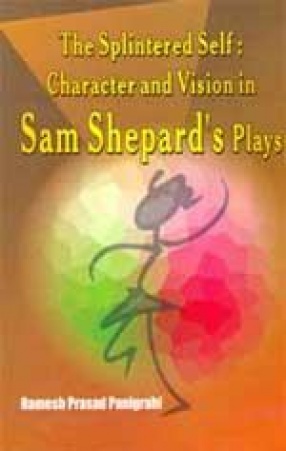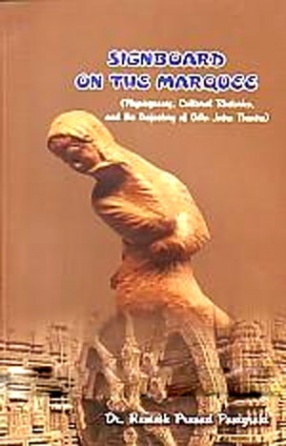The Splintered Self: Character and Vision in Sam Shepard’s Plays
Synopsis
This is the first critical evaluation in India, published on Sam Shepard, the Pulitzer winner of the Off and Off-Off-Broadway theatre movement, and this book premiers the study of a whole different way of comprehending Shepard’s exciting, avant-garde and bafflingly experimental plays. A treatise on postmodern characterology, the book maps out the psychic terrains of the performers that are fractured bits of acting selves collaged as characters to image the structure of his plays. The playwright treats these splintered characters more as aesthetic components that a mimetic human beings. But, Dr. Panigrahi measures them in terms of psychological splintering and proves that if the dramatic characters do have a character, why not the performers? Besides chartering the evolutionary history of the multiple interpretations of self and character, the study traces the formats of post-Albee dramaturgy from multi-disciplinary perspectives: film, sculpture painting music and pop culture. The study also extensively deploys theories of psychology from Freud to Lacan at different stages, the game mechanics of Berne and other references pertaining to the episteme of self. The arguments are strengthened occasionally by references to pop music, jazz, cowboys, science fiction, hipster-argot, rock rhythm, tribal myths, gangsters, slang and rhapsodic poetic lines since Shepard uses them for theatrical spell of magic. The book occasions, in many ways, the first space in India, for an alternative criticism on postmodern theatre. There emerges from the book a deep probing into the polymathic imagination of Shepard and ultimately, a probable pattern to experience the artfulness of the characters, their power to attract our attention and their compulsive necessity to surrender to pretensions and fictionality, which constitute the artistic truth of these splintered characters.
Read more
18.00
16.2
$
20.00 $
Free delivery Wolrdwidе in 10-18 days
Ships in 1-2 days from New Delhi
Membership for 1 Year $35.00
Get it now and save 10%
Get it now and save 10%
BECOME A MEMBER
Books by the same author









Bibliographic information